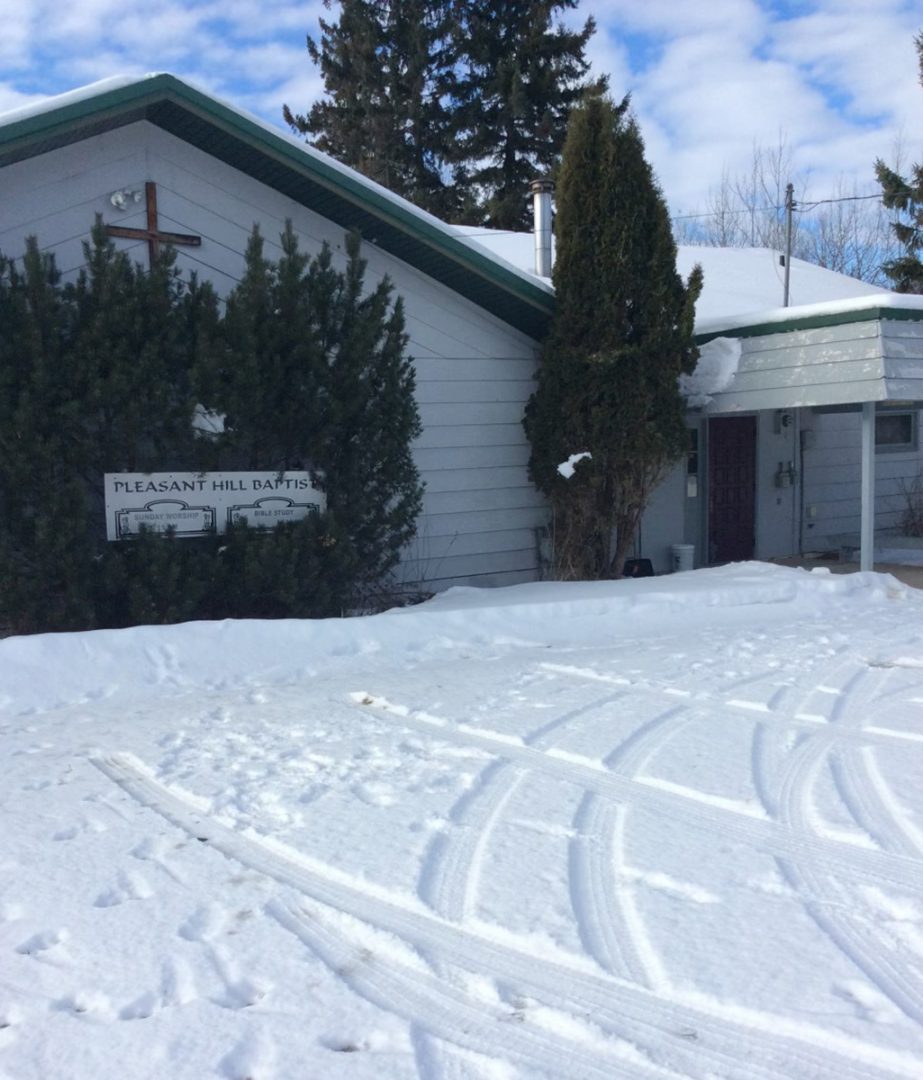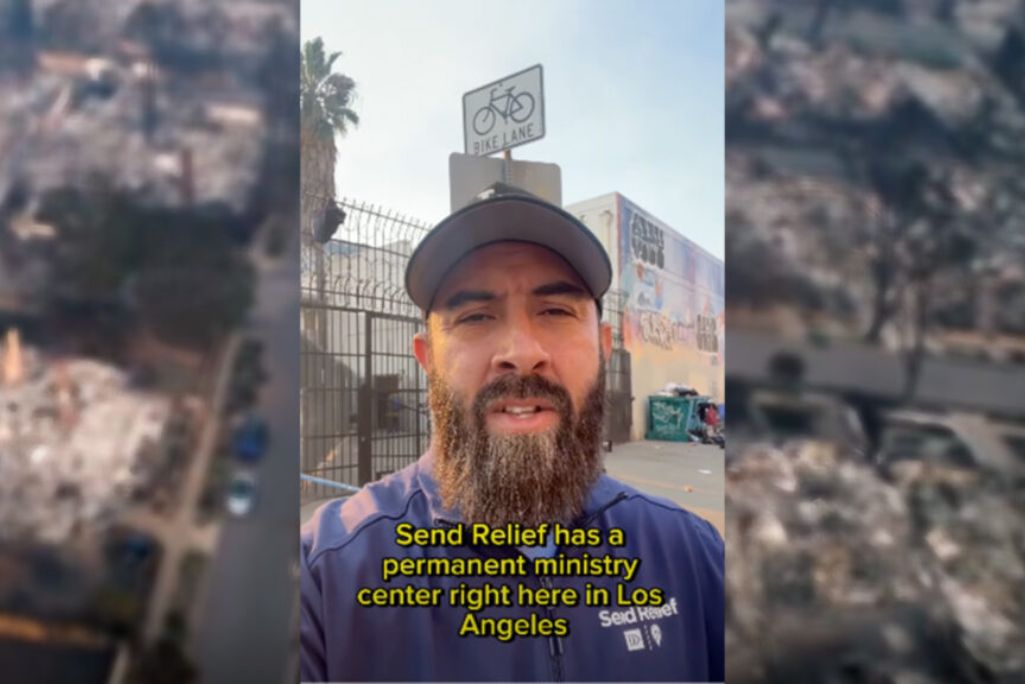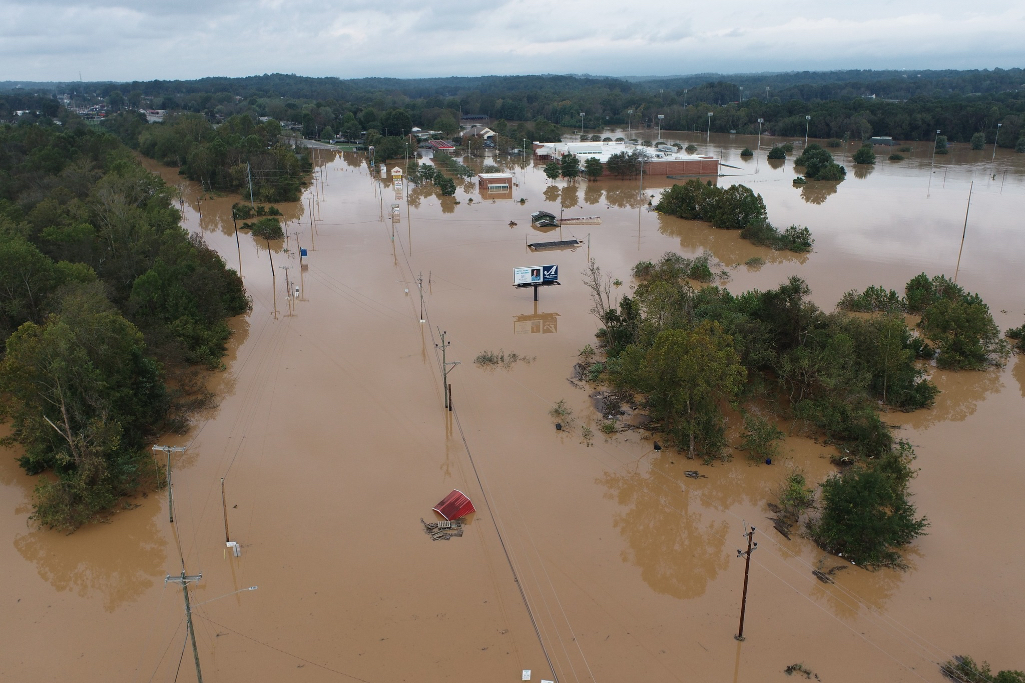
Pleasant Hill Baptist Church in International Falls, Minn., is among those whose members are bracing for a winter storm in the coming days.
INTERNATIONAL FALLS, Minn. — Larry Reedy has experienced worse storm systems than the one currently passing through the country. But like the members of Pleasant Hill Baptist Church, located in the town called the “Icebox of the Nation,” he knows that is no reason to not be prepared.
“The models are showing 6-12 inches of snow to be expected where I live,” Reedy said. “It depends on how fast it comes in … It’s important to have food, your medication and anything else you may need if you need to shelter for a few days.”
Reedy lives in Ely, Minn., about 100 miles from International Falls. A retired police officer and business owner, he serves at Pleasant Hill as a volunteer interim pastor.
Ben Seamans, Disaster Relief director for the Minnesota-Wisconsin Baptist Convention, also said that such weather requires preparation as well as patience.
“I’m going to close my doors and windows and have my skid steer ready,” he said. “At this point there’s really nothing you can do but prepare for it.”
Seamans and Reedy said it was important to also check in on shut-ins, senior adults and single parents prior to bad weather’s arrival. Benevolence ministries and deacons need to be ready.
“Those living in remote areas are usually prepared for it,” said Seamans, who serves in a bivocational role alongside his full-time job in construction. “If it’s snow, that’s no big deal. But if there are wet roads and they freeze, that’s horrible.”
The National Weather Service reported Tuesday (Dec. 13) that the powerful storm will bring “widespread impacts to the central and southern U.S.” with heavy snow, blizzard conditions, strong winds and ice coming to the northern Plains and Upper Midwest.
Tornado warnings circulated through north Texas and Oklahoma today, with at least one causing damage south of Norman. Oklahoma Baptist Disaster Relief tweeted that assessors were in the area.
Reedy, trained as a Disaster Relief chaplain, has performed various DR work from flood cleanup to kitchen prep. He’s learned that having a plan is crucial.
“One of the worst storms I remember was in 1991,” said Reedy, who grew up in Ely. “That one stopped things for a couple of days. In 1996 we had another that put the mercury at 60 below zero – because that’s as far as the thermometer went.
“It was so cold that even the politicians and attorneys had their hands in their own pockets,” he chuckled.
A regular snowfall doesn’t stop churches from gathering. Cold temperatures are another case, especially when considering the remoteness of some areas and distance to get to church.
“When it gets bitterly cold and the roads are bad, we may cancel for safety reasons,” Reedy said. “You don’t want someone having car trouble or getting stuck far from help.
Temperatures that drop to 20 or 30 below “cause us to evaluate,” he said.
“If you break down on the road and run out of gas or your engine stops running, you have about 20 minutes before you get frostbite,” said Reedy, who dealt with such situations in his police career.
Seamans arrived back in the country on Dec. 9 from a trip to Israel with his wife, so he’s still acclimating back to Wisconsin’s weather as well as time. A native of the area, though, it won’t take long even if he approaches such weather now differently than he did as a teenager.
“In 1978 we went out as a youth group with shovels and dug out shut-ins,” he said. “We canvassed the neighborhood looking to help folks. Then we shoveled off a pond to make an ice rink and built a bonfire in the middle of it and skated around it. That was fun.”
That won’t be in the plan this time.
“I have a plow for my skid steer, so I can get out there if the snow starts to pile up in my driveway,” he said. “I’m 58 years old and don’t like digging out. I’d rather use the skid steer than a shovel.”
(EDITOR’S NOTE – Scott Barkley is national correspondent for Baptist Press.)


